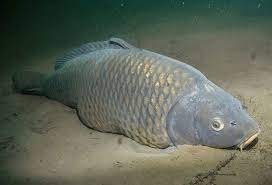
How fish sleep in water: features of fish sleep from their physiological structure
To answer the question "How do fish sleep?"It is necessary to understand the peculiarities of their anatomical structure.
When you watch the fish in the aquarium, the impression is created, that they never rest, for their eyes are always open, but, this statement is not true. This is happening, because fish do not have eyelids on their own. The eyelid is an auxiliary organ of the eye, whose main function is to protect against external influences and drying. The latter is not scary for fish in water.
However, the fish are still asleep, although this differs from our understanding of deep and carefree sleep. Unfortunately, the peculiarities of the structure of their body, as well as habitat, prevent fish from falling into a deep sleep, during which they would be completely disconnected from reality.
What is the difference between the sleep of fish?
It is best to mark this condition with a period of low activity. In this position, the fish do not move, although they continue to perceive all sounds and are ready to take active action at any moment. Unlike most mammals, the brain activity of fish during rest remains unchanged. That's why they don't sleep like that at all, like other animals, they always arrive in a conscious state.
So what are they still sleeping fish? If you carefully observe them in the aquarium, then you can see, that periodically the fish freeze in the water without movement. The fish in this state can be called sleeping.
Depending on the species, each fish has a certain time to sleep. For an hour, in which the fish is resting, affects the environment and living conditions, as well as diet. Example, such factors may be the transparency of the water, its viscosity and density, depth of stay, flow velocity. Classifying fish by time of day for rest can be distinguished:
- day fish - light-loving. It does not mean, that at night they want to sleep, this indicates, that the structure of their eyes allows them to see better in the water during the day, and in the dark - they rest if possible;
- nocturnal fish - twilight. These fish see well in the dark, however, their eyes can be very sensitive to daylight, so during the day they try to rest. Many species of predators are nocturnal fish.
Because fish sleep, you can determine which class they belong to.




